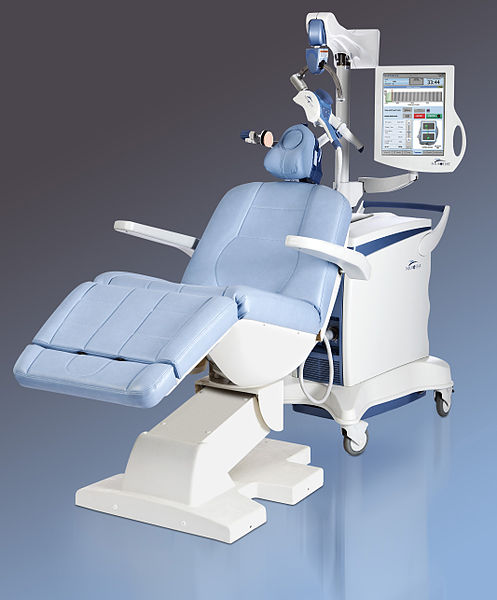Transcranial magnetic brain stimulation treats depression without affecting sleep
October 30, 2012
While powerful transcanial magnetic stimulation (TMS) of the frontal lobe of the brain can alleviate symptoms of depression, those receiving the treatment did not report effects on sleep or arousal commonly seen with antidepressant medications, researchers have found.
“People’s sleep gets better as their depression improves, but the treatment doesn’t itself cause sedation or insomnia.” said Dr. Peter B. Rosenquist, Vice Chair of the Department of Psychiatry and Health Behavior at the Medical College of Georgia at Georgia Health Sciences University.
The finding resulted from a secondary analysis of a study of 301 patients at 23 sites comparing the anti-depressive effects of the Neuronetics Transcranial Magnetic Stimulation Therapy System to placebo treatment in patients resistant to antidepressant medications. These initial findings, published in the journal Biological Psychiatry in 2007, were the primary evidence in the FDA’s approval of TMS for depression.
The secondary review reaffirmed TMS’s effectiveness in depression and also revealed no differences in rates of insomnia or sleepiness among those who got actual and sham (placebo) therapy. Patients in the treatment group were also no more likely to request medication for insomnia or anxiety.
Sleep problems are a common side effect of major antidepressants: some drugs sedate patients while others stimulate them and increase insomnia. Insomnia occurs in 50-90 percent of patients with major depressive disorder. Other depressed patients complain they sleep too much. The good news is that TMS does not contribute to insomnia or oversleeping.
TMS targets the prefrontal cortex of the brain, involved in mood regulation as well as other higher-order functions like planning, evaluating and decision-making. In this procedure, patients sit in a recliner and receive brief pulses of a MRI strength magnet field at the front of the head. The magnetic energy of TMS causes the brain cells closest to the surface of the brain to increase their activity which in turn influences the activity of the brain as a whole.
Major Depressive Disorder affects approximately 14.8 million, or about 6.7 percent of American adults in a given year, according to the National Institute of Mental Health. It’s the leading cause of disability in ages 15 to 44.
Interestingly, the Georgia Health Sciences University news release did not mention the other possible side effects of some antidepressants, including suicide. — Ed.
